They’re teaching classes, doing research, grading papers, assisting professors while also being a student; graduate student workers. However, all this work and they say they can barely afford to live.
“It’s just really frustrating to have the fact that you don’t have enough money to be able to pay rent or something, get in the way of kind of being able to perform your job to the full potential,” Evan Arnet, Indiana Graduate Workers Coalition spokesperson, expresses his concerns as a graduate student worker.
At Indiana University, nearly 30 percent of all undergraduate classes are taught by graduate student workers.
Around 18 months ago, the Indiana Graduate Workers Coalition was formed after a nationwide graduate student walk out to protest fees. The group began with a petition, which jump-started their action. Now, over 300 graduate students are a part of the coalition and each has a unique story to share about their challenges.
Their main goal is to eliminate mandatory fees and international student fees, which amount to over $1,000 worth of their pay from the university. For Jacobs School of Music graduate students, the fees total over $2000 a year.
“A lot of people are actually not doing so great, there are people who have to work second jobs…people have had to put off important medical care,” Elizabeth Williams, public relations director of the Indiana Graduate Workers Coalition said. “..so it’s been really hard for a lot of people.”
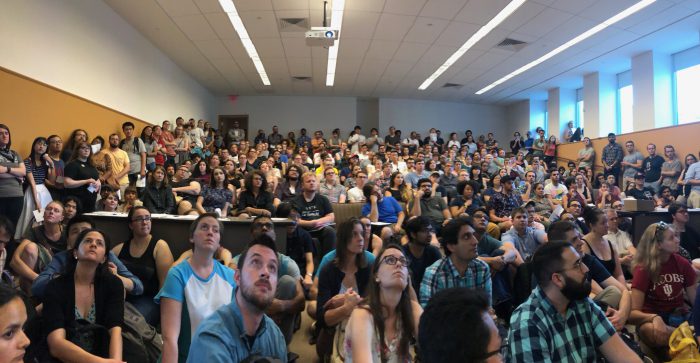
Credit Kris Johnson
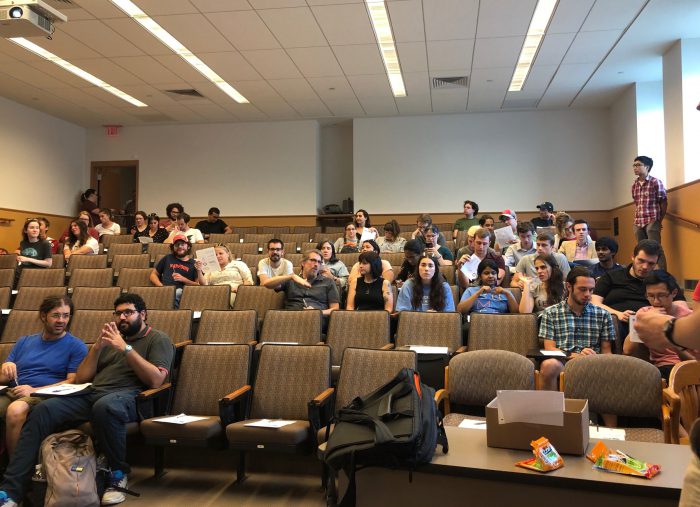
Credit Kris Johnson
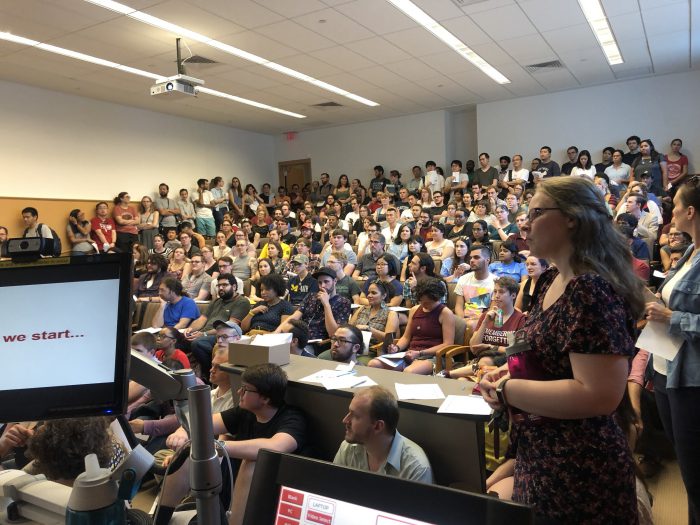
Credit Kris Johnson
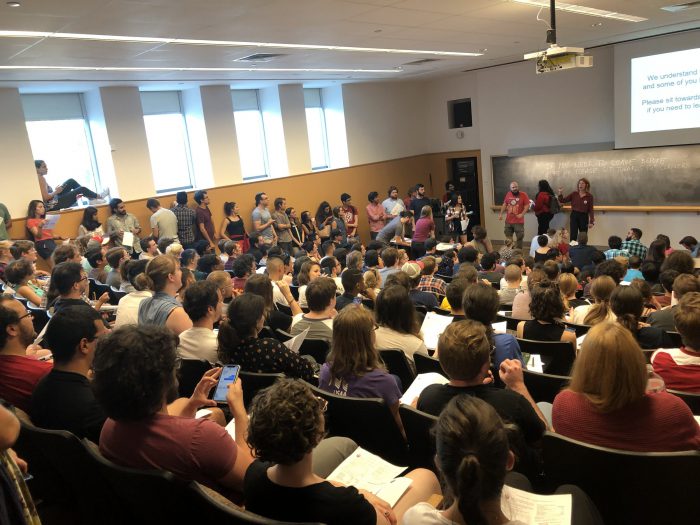
Credit Kris Johnson
After months of planning, the graduate students held a town hall on September 12, 2019 where over 300 students attended.
On Thursday September 19, 2019, the College of Arts and Sciences announced they would be eliminating unremittable fees starting fall of 2020. This change was made in response to the coalition’s organized action.
The next day, over 100 graduate students attended a press conference held by the Indiana Graduate Workers Coalition in response to the eliminated fees. For those graduate students in the College of Arts and Sciences, they will no longer have to pay an additional $1200 a year in fees. They say IU is the only university in the Big 10 that even has these fees to begin.
“I’ve been here for 6 years and I haven’t had a raise in 6 years and this is the first positive change in my pay since i’ve been here,” Evan Arnet explains his frustration but responds to the efforts from the College of Arts and Sciences. “So it’s really just exciting to have this kind of progress.”
He says being underpaid was not a challenge he expected to have when he came to Indiana University as a graduate student. Additionally, he says their labor as graduate student workers is essential to the university and they at least deserve a living wage.
“This is a really large labor force for the university and we want this labor for to function the best we can,” Arnet said. “But it’s hard to do that when we are getting paid maybe half what the university identifies as the living wage here.”
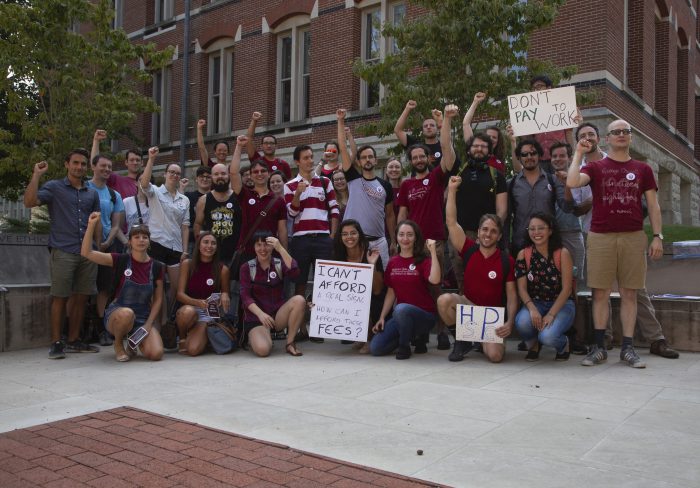
Credit Kris Johnson
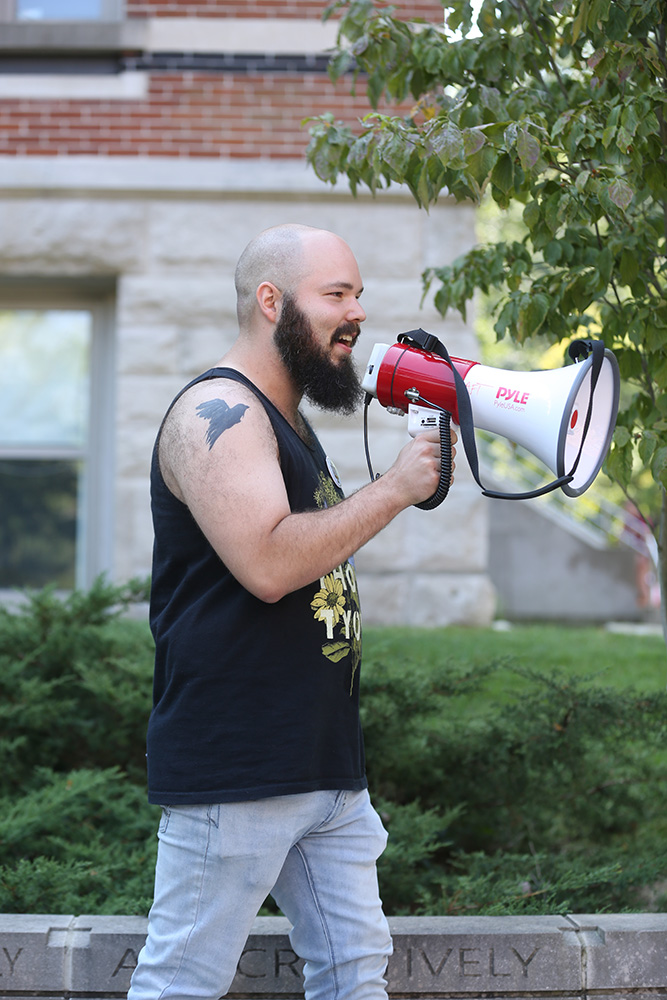
Credit Kris Johnson
The Indiana University administration says they are planning on keeping open conversations with the coalition.
“They do really important work for Indiana University and we want to make sure that they are being treated in an equitable way,” IU spokesperson Chuck Carney responds to the graduate student workers movement. “We want to keep that dialog open and continue to talk about it. Certainly we have heard those concerns and we are going to make sure we look at things.”
On Friday September 27, 2019 the Indiana Graduate Student Workers met with Executive Dean Rick van Kooten and Associate Dean Padraic Kenney of the College of Arts and Sciences to discuss the change in fees. According to a press release sent out by the coalition, there were 30 graduate students from the coalition in attendance. The meeting concluded with an agreement to include graduate students to participate in university decision-making and a potential meeting with Provost Lauren Robel.
“We very much appreciate all the faculty’s work and the support we receive from our departmental directors for graduate education; however, we do take the stance here that we are our best representatives,” Valentina Luketa, one of the Coalition’s spokespeople at this meeting said. “We do not think the faculty should be in a position to negotiate for us because, well, they’re not us, even if they often have our best interests in mind. This is why we want representation and a seat at the table in decision-making at IUB.”
Elizabeth Williams and Evan Arnet say they agree that their quality of teaching would improve if the fees were eliminated and the entire working environment improved.
“Making conditions better will mean a lot less stress and letting graduate teachers workers..but it’s just really hard right now,” Williams expressed. “We want to be the best teachers we can, the best researchers we can and it’s just really hard right now. So hopefully graduate school will be really hard in all the ways you expect it to be hard.”
Arnet says, this change from the College of Arts and Sciences is just one small step and the Indiana Graduate Workers Coalition will continue working towards further action.
For more information about the Indiana Graduate Student Workers Coalition, visit their website.












